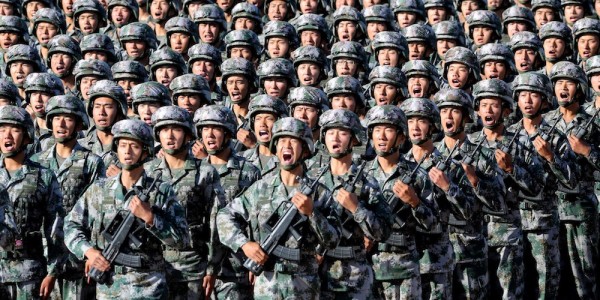

The Chinese military surreptitiously inserted tiny microchips no larger than single grains of rice into servers on local assembly lines in order to gain access to data networks run by U.S. government agencies ranging from the Department of Defense to the Central Intelligence Agency, according to an explosive investigation from Bloomberg.
- A three-year investigation by U.S. government officials found that servers assembled for startup Elemental Technologies by San Jose-based company Supermicro reportedly contained tiny microchips “inserted at factories run by manufacturing subcontractors in China,” Bloomberg reported.
- The chips, independently discovered by engineers at Amazon and Apple in 2015, purportedly allowed hackers to “create a stealth doorway into any network that included the altered machines,” per Bloomberg, a Trojan horse that gave hackers a direct line into any sensitive network.
https://twitter.com/BW/status/1047804941266563072
- Elemental servers assembled by Supermicro are “found in Department of Defense data centers, the CIA’s drone operations, and the onboard networks of Navy warships,” per Bloomberg, and the revelation prompted DoD officials at the time to request a small group of technologists “to think about creating commercial products that could detect hardware implants.”
- “Public documents, including the company’s own promotional materials, show that the servers have been used inside Department of Defense data centers to process drone and surveillance-camera footage, on Navy warships to transmit feeds of airborne missions, and inside government buildings to enable secure videoconferencing,” Bloomberg reports. “NASA, both houses of Congress, and the Department of Homeland Security have also been customers.”
- News of the years-long infiltration of secure networks through the lowest levels of the global industrial supply chain — China still manufactures the majority of the raw tech behind the world’s mobile phones and personal computers — reflects not just a coup for the Chinese intelligence community, but an alarming vulnerability of the U.S. industrial base.
- Technologist Joe Grand put it best in an interview with Bloomberg: “Having a well-done, nation-state-level hardware implant surface would be like witnessing a unicorn jumping over a rainbow … Hardware is just so far off the radar, it’s almost treated like black magic.”
August Cole, a coauthor of the novel “Ghost Fleet” — which features an eerily similar scenario involving Chinese chips hidden inside an F-35 that ruin its stealth capabilities, wrote on Twitter, “Hey Siri, what is my #ghostfleet moment of the day?”
You can read the full report at Bloomberg.
WATCH NEXT:
